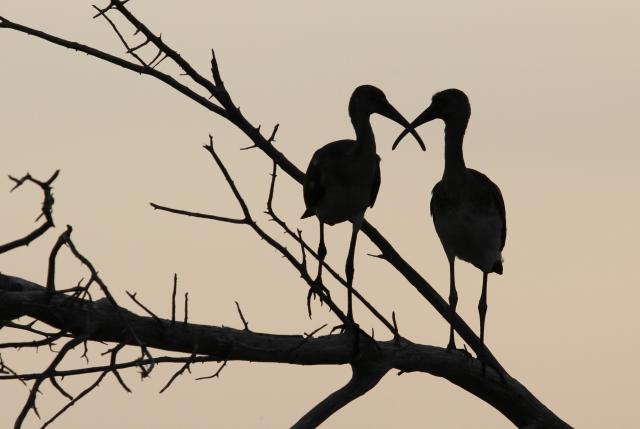So that we can fully protect our birds in North Carolina, Audubon must engage in strategic political activity. In reality, we’ve been doing this for years. We’ve worked with partners to protect land and birds for decades. Now, we’re taking a more public tack to move the needle on key issues.
As always, we will rely on our science, our partnerships and our relationships with other organizations to quietly solve problems affecting birds before we wade into the public fray.
We know this is a tough political climate to launch a larger policy program. But we have no choice – we know from our climate change report birds need our help and that we cannot sit back and wait. We have to be the voice for conservation that brings the elected officials along to help the birds we protect.
Toward that end, we are adding a new, critical focus to become an even stronger voice for birds at the state level. That’s why we are adding advocacy capacity for policy work in Raleigh, to bring our conservation voice to the halls of the legislature, with state agencies and in the Governor’s office.
We Can Make A Difference
With our supporter base, we have major clout in our state. We are 13,000 members, 10 chapters and more than 8,400 online activists strong. That makes Audubon NC one of the largest grassroots conservation organizations in the state. We MUST put that strong voice to work on state conservation issues that help birds live and thrive.

Indeed, Audubon’s membership is rooted in every federal and state legislative district in North Carolina. In addition, we are diverse, with more than 40% of Audubon members (nationally as well as here in North Carolina) identifying as Republican or Independent. Even more live in politically red or purple communities.
Our power in numbers plus our unique knowledge about bird conservation and our diversity can – and will - move mountains in North Carolina. We know it.
Our 2015 Legislative Focus Agenda Is Strategic And Simple.
There are many issues that have an effect on birds in our state, but these are the issues where we feel we can have the greatest impact right now. We must be strategic in the current political environment.
Starting in 2015, we’ll be focusing on these major policy areas:
1. Continue to Protect Critical Habitats on Our Coast.
- By protecting critical bird habitat from development and other threats including construction of jetties and other hardened structures along coastal bird habitats.
2. Increase funding for open space conservation, protection of ecological diversity and land acquisition projects through the Clean Water Management Trust Fund and the North Carolina Parks and Recreation Trust Fund.
- By increasing support and funding for the Clean Water Management Trust Fund, we can ensure that funds are again available for projects that help protect birds, such as the acquisition of Lea Island or Warwick Mill Bay. The fund has been cut dramatically in recent years.
- With increased funding and support of the North Carolina Parks and Recreation Trust Fund, we can preserve the habitats needed to support our state’s birds.
3. Support energy policies that reduce North Carolina’s dependence on fossil fuels, and provide incentives for conservation and the development of clean energy.
- Climate change is one of the greatest threats to our birds.
- Decreasing dependence on fossil fuels will reduce greenhouse emissions, which contribute to climate change – and we must all be part of this effort.
- Some of the specific issues where we may add our voice include preservation for NC’s Clean Energy Tax Credit, continuation of the NC’s laws requiring large utilities to produce a portion of their energy from renewable sources, and increase public access to energy use information, so we can all make smarter decisions about conserving the energy we use.
Our Greatest Strength Is In Our Numbers
The first – and most important – step in becoming a strong voice for birds is engaging our grassroots members to speak out for them. You will be hearing more about Audubon’s stance on issues in the very near future, and we want you to know how you can engage in this activity.
Right now, you can help with three things:
- Evangelize About Birds – Share your passion for birds with your friends, family and community.
- Educate Yourself - You will receive legislative updates to keep you abreast of legislation that is important for our birds. Take time to read them and ask questions.
- Be Ready to Take Action –Our birds will need your help. Make sure you have signed up for our Action Alert email system - http://www.audubonaction.org/site/Survey?ACTION_REQUIRED=URI_ACTION_USER_REQUESTS&SURVEY_ID=1424
If you have a passion for advocacy work, please let our team know – Karen Fernandez, kfernandez@audubon.org. We have jobs for you!
Finally – thank you! You are the most important resource for birds in our state. Your time and energy have helped protect thousands of acres of habitat for dozens of species. Together we can continue this success for generations to come.



